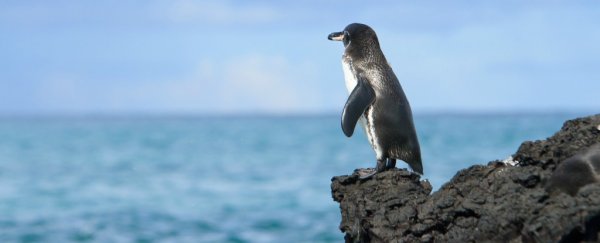This is an excerpt from Macquarie University's Tackling Global Challenges magazine. Read the full magazine here.
Oceans are fundamental to life on Earth: they regulate our climate, support countless marine species and sustain billions of people. They are also surprisingly fragile and unknown, and that's where Macquarie University is making a splash.
"Students often come to Macquarie feeling quite depressed about the health of our oceans," says Ian Goodwin, Deputy Director of the university's Marine Research Centre.
"But they come alive when they realise that they can help to tackle some of the challenging problems."
As our oceans warm, rise and become more acidic, and as currents shift and pollution and invasive species threaten places we hold dear, Macquarie researchers across a range of disciplines are committed to working on understanding why.
And, in doing so, they are empowering a new generation of marine ambassadors.
For Goodwin, a pressing issue is the impact our rising sea levels will have on Australia's coastlines. He's concerned about how our changing winds and currents are affecting ocean temperatures and therefore the health and distribution of marine species.
He's studying what the oceans were doing 130,000 - 118,000 years ago when global temperatures and sea levels rose to similar levels to those we face today.
"Our past coastline is archived on our coastal plains and, using high-resolution imaging from the air or space, we are reconstructing that coastline to try to understand how it responded to that magnitude of sea-level rise," he explains.
"This will give coastal planners empirical evidence to determine where the current coastline might be most vulnerable, and inform governments as to where they need to either invest in coastal protection or relocate communities altogether."
Eureka Prize-winner David Raftos, in Macquarie's Department of Biological Sciences, has a different ocean focus.
He's unlocking the secrets of how oysters – a marine equivalent of the 'canary in the mineshaft' – contend with climate change, and the acidification and heating of our oceans.
"I'm working with the aquaculture industry to breed oysters that can cope with environmental stressors like pollution, temperature and salinity fluctuations, competition and infection," Raftos says.
"We've found they have novel systems for maintaining homeostasis in the face of stress, and that these systems can be exploited to provide solutions to problems in aquaculture, fisheries and environmental management."
David's team has helped breed stronger, more disease-resistant oysters that promise a 10 - 20 percent increase in yields for the AU$200 million industry. Our dwindling natural oysters and even corals may also benefit.
Macquarie enjoys strong links with the Sydney Institute of Marine Science and provides access to two vessels, giving today's students plenty of scope to make discoveries in marine environments.
Marine scientist Linda Armbrecht had long dreamt of visiting Antarctica.
During the past year she has travelled to the frozen continent twice as part of her post-doctoral studies of phytoplankton – the tiny micro-algae that perform half the photosynthesis on Earth and deliver half the oxygen we breathe.
"It is a wildly beautiful and very natural place," she says. On Linda's second voyage, to eastern Antarctica, she was joined by several Macquarie PhD and Masters students.
Half the scientists onboard were women, including the Chief Investigator, Leanne Armand, who lectures at Macquarie. Armbrecht used the opportunity to extract DNA from phytoplankton fossilised in sea floor sediments stretching back 30,000 years.
"Phytoplankton are fundamental to the ocean's food webs and our carbon cycle, but are very sensitive to environmental change," she says.
"I am determining which species thrived and which didn't during previous periods of natural climate change. This may help us understand how current species of phytoplankton will cope as our climate continues to change."
Macquarie University is a place of pioneering minds, breaking free of conventions. Read more about how their students are Tackling Global Challenges.
